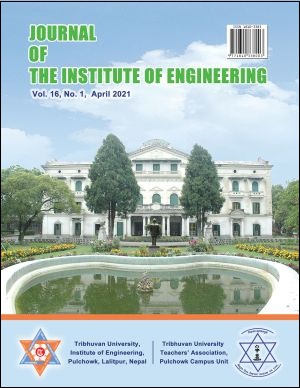Development of Polynomial Mode Shape Functions for Continuous Shafts with Different End Conditions
DOI:
https://doi.org/10.3126/jie.v16i1.36653Keywords:
Continuous shaft, Polynomial Shape Function, Transcendental Shape Function, Natural FrequenciesAbstract
Common methods used to determine the solutions for vibration response of continuous systems are assumed mode method, Rayleigh-Ritz method, Galerkin Method, finite element method, etc. Each of these methods requires the shape functions which satisfy the boundary conditions. Shape functions derived in most of the classical textbooks are simple trigonometric functions for some end conditions but are very complex transcendental functions for many end conditions. It is very difficult to determine the vibration response of a continuous system analytically by using such transcendental shape functions. Hence this paper presents a method to develop polynomial shape functions required to solve the vibration of continuous shafts with different end conditions. The natural frequencies obtained from the developed polynomial shape functions are compared to those obtained from the classical transcendental shape functions and found very close for the first three modes.
Downloads
Downloads
Published
How to Cite
Issue
Section
License
The Copyright is held by Journal of the Institute of Engineering, IOE, TU




